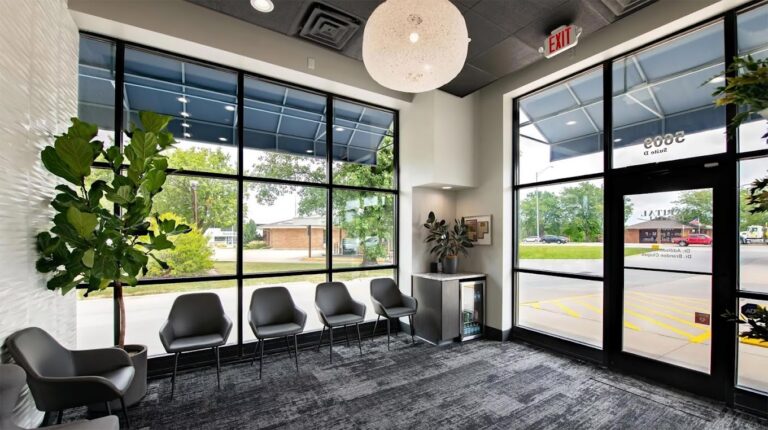- Pick up the tooth by the top (crown), NOT by the root—do not touch the root.
- Rinse the tooth very gently with only water, no soaps or chemicals. Do NOT scrub the tooth.
- If possible, place the tooth back into the socket. Gently push it in with your fingers then hold it in place while trying to bite down.
- If you can’t place the tooth back into the socket, put it in a container with milk.
- Contact your dentist right away—the faster you act, the more likely it is that your tooth will be able to be reimplanted.
Are You Experiencing An Emergency?
Please call us immediately at 402-420-0999 to schedule your emergency appointment as soon as possible. If you call outside of our office hours or we are unable to answer your call, please leave a message, and we will get back to you as soon as possible.
Office Hours:
Tuesday: 8:00 am – 5:00 pm
Wednesday: 8:00 am – 5:00 pm
Thursday: 8:00 am – 5:00 pm
Friday: 8:00 am – 3:00 pm
New Patients Welcome for Emergency Dental Care
Are you experiencing a dental emergency but not currently a patient of our office? No worries, we welcome new patients and are here to help! Capital Dental offers appointments for dental emergencies to provide prompt and effective care when you need it most. Contact us immediately to schedule your emergency visit and receive the compassionate treatment you deserve.

Cost of a Dental Emergency
Understanding the cost of a dental emergency is important for planning and peace of mind. At Capital Dental, we aim to provide clear and affordable emergency dental care. Our comprehensive emergency exam, which includes a detailed evaluation and necessary X-rays, is priced at $142. This exam helps our dental team accurately diagnose the problem and recommend the most effective treatment plan. The cost of additional treatments and procedures will vary based on the complexity and urgency of the situation. We are dedicated to providing high-quality care and will walk you through your options.
Insurance Providers
At Capital Dental, we prioritize quality dental care within your budget. We submit insurance claims on behalf of our patients, even if we're out-of-network. Please contact your insurance provider to discuss coverage and out-of-network benefits. We're here to help you maximize your insurance benefits. If you have questions, reach out to our office. We're committed to helping you achieve the smile you deserve.
What is a Dental Emergency?
Dental emergencies are situations that require immediate dental treatment to stop bleeding, save a tooth, treat a severe infection, or alleviate severe pain. Tooth abscesses or infections can be life-threatening, so if you notice any of these symptoms, you should promptly contact our office. If it is outside of our office hours, immediately visit a medical facility.
To determine if your situation is an emergency, consider the following questions:
- Are you experiencing severe pain or significant swelling?
- Is your toothache persistently painful?
- Have you suffered a loose or knocked-out tooth?
- Do you notice swelling in your cheeks or face along with a toothache?
- Are you experiencing extreme tooth sensitivity?
- Are you bleeding from the mouth that will not stop?
- Have you sustained an injury to your jaw?
Home Care for Dental Emergencies
-
What if my tooth gets knocked out?
-
What if my tooth is loose but still attached?
If you have a loose tooth or a tooth out of alignment, contact us right away to get an appointment setup as soon as possible. You can try to put the tooth back in its original position by very gently positioning the tooth with your fingers—do not force it. We will advise on if there is anything else you should do in the meantime, prior to your appointment.
-
What if I have a chipped or cracked tooth?
If you have a chipped or cracked tooth, contact your dentist right away. Chipped teeth that aren’t painful can usually be smoothed out or filled in at a regular dental appointment. A cracked tooth typically indicates that there’s damage to the inside of the tooth, as well as the outside. If your tooth is cracked please follow these steps, after contacting your dentist.
- Rinse your mouth with warm water
- Apply a cold compress to minimize swelling
- Take acetaminophen (not aspirin) to alleviate pain
- Do NOT apply any pain medication—including Orajel—directly to the gums, as it can damage gum tissue







